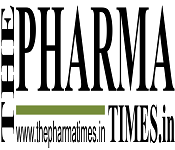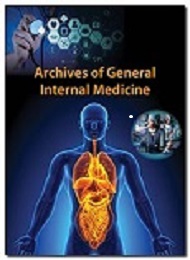Theme: Dissemination of Knowledge in Medicine and Hospital Management
INTERNAL MEDICINE 2022
- About conference
- Why to attend?
- Sessions and Tracks
- Market Analysis:
- Case reports & Studies in Internal Medicine
- Scope and importance:
Internal medicine and hospital medicine (in Commonwealth nations) is the medical specialty dealing with the prevention, diagnosis, and treatment of internal diseases. Physicians specializing in internal medicine are called internist or physicians (without a modifier) in Commonwealth nations. Internists are skilled in the management of patients who have undifferentiated or multi-system disease processes. Internists care for hospitalized and ambulatory patients and may play a major role in teaching and research. Internal medicine and hospital medicine are often confused as equivalent in the Commonwealth nations .Internal medicine is also a specialty within clinical pharmacy and veterinary medicine.
The 13th international world congress on Internal and hospital medicine 2022 Conference focuses on learning about the significant Trends in Internal Medicine and hospital medicine , Drawbacks, and its Innovative Vision & Strategies, Internal Medicine and hospital medicine , and it forwards in making better Health ; this is going to be a Best opportunity to influence the largest Assemblage of participants from the Internal Medicine community. Conduct presentations, meet with current and Specialized Potential Scientists and Researchers, make a splash with new Innovative Processing Technologies and developments in Internal Medicine, and receive Name Recognition at this 13th International day event. world renowned speakers, the most recent techniques, and the newest updates in Internal Medicine are hallmarks of this Conference.
- Telemedicine
- Healthcare
- Genomic Medicine
- Adult Diseases
- Primary Care
- Patient Care
- Hospital Care
- Medical Reports
It estimated that, most of the countries have an absolute shortage of 2.3 million physicians and nurses. These shortages of primary health care professionals, suggest that many countries have insufficient numbers of health professionals to deliver essential health interventions. Shortage is defined as having a projected supply of primary physicians that meets less than 80% of the forecasted primary care demand at estimated means that affect the adults are recognized by internist during diagnosis and treatment, prevention of general or chronic disease conditions cover under internal medicine and hospital medicine. All the general, rare diseases, severe chronic illnesses are covered under this session.
Track 1: Internal medicine
Internal medicine is the medicinal characteristic dealing with the prevention, detections and treatment of adult diseases.Physicians specializing in internal medicine are called internists,or in Commonwealth nations. Internists are experienced in the management of patients who have multi-system disease processes. Internal medicine patients are often seriously diseased or require complex examination; internists do much of their work in hospitals. Internists often have subspecialty interests in disorder affecting particular organs or organ systems. patient care is defined as the management of hospital facilities, assistance and staff as per the therapeutic and nursing needs of the patient. Internists care for confined and ambulatory patients and may play an extensive aspect in teaching and research.
Track 2: Hospital medicine
Hospital medicine is a medical specialty .Emergency clinic drug is a sort of training inside interior prescription in which the clinical centre is thinking about hospitalized patients. Internists rehearsing clinic medication are every now and again called "hospitalists." Although not all hospitalists are required to be internists, the nature of inward prescription preparing interestingly plans internists for emergency clinic drug practice. Subsequently, by far most of the hospitalists are prepared in inward prescription, normally broad inside drug. The control of the emergency clinic drug became out of the expanding multifaceted nature of patients requiring medical clinic care and the requirement for committed clinicians to supervise their administration. The hospitalist demonstrates superseded the customary strategy for thinking about hospitalized patients, which was regularly done by clinician likewise observing wandering patients or with other clinical commitments that constrained their capacity to give the power of consideration frequently required by these patients.
Track 3: Occupational Medicine and Pain Management
Occupational Medicine is centred on the treatment of related wounds and sicknesses. Doctors prepared in word related drug analyse and treat business related wounds substantially more adequately than most essential consideration doctors. Word related medication is the subspecialty of preventive drug worried about the: wellbeing, security, and execution of labourers. Word related wellbeing experts furnish therapeutic consideration to specialists with business-related wounds and sicknesses. They likewise work with organizations, representatives, controllers, guarantors, general wellbeing, and other words related to security and wellbeing experts to make more secure working environments. They're forward-thinking on government and state directions for workforce wellbeing and security, including Occupational Safety and Health Administration (OSHA), Department of Transportation (DOT), Federal Aviation Administration (FAA), so they can make the best treatment designs and perform administrative examinations.
Track 4: Intensive care medicine
Intensive care medicine is a branch of medicine board with the diagnosis and administration of life-threatening disease cases requiring organ support and invasive auditing. Patients requiring intensive care may compel support for instability, acute renal failure, respiratory compromise, lethal cardiac arrhythmias or the increasing effects of multiple organ failure, more frequently referred to now as multiple organ dysfunction syndrome. They may also be introduced for invasive auditing, such like the crucial hours after major surgery when allow too unstable to transfer to a less intensively auditor unit. Intensive care is usually only offered to those whose condition is potentially reversible and who have a good chance of surviving with intensive care support. A prime requirement for admission to an intensive care unit (ICU) is that the underlying case can be defeated. Critical care medicine is a relatively new but increasingly important medical specialty. Physicians with training in critical care medicine are referred to a intensivist.
- Recent Innovations in Intensive Care Medicine
- Innovations in Patient Care
- Medical Assistance
- Patient Evaluation
Track 5: Role of Internal Medicine Physicians
Internal medicine specialists, also known as general internal medicine specialists or general medicine physicians in Commonwealth countries, are specialist physicians trained to manage particularly complex or that single-organ-disease specialists may not be trained to deal with. They may be asked to tackle undifferentiated presentations that cannot be easily fitted within the expertise of a single-organ specialty, such as weight loss, chest pain, confusion or change in conscious state. They may manage serious acute illnesses that affect multiple organ systems at the same time in a single patient, and they may manage multiple chronic diseases or"comorbidities" that a single patient may have.
Track 6: Infectious diseases & Nuclear medicine
Atomic Medicine has developed from a therapeutic subspecialty utilizing very essential tests to one utilizing elaborate strategies to has likewise been a convenient discussion about who must be in charge of keeping pace with the majority of the segments of the formative cycle; imaging, radiopharmaceuticals and instrumentation. The atomic drug is a restorative forte including the use of radioactive substances in the determination and treatment of malady. The advancemen of atomic medication was quickened with the presentation of the gamma camera. It was the first SPECT camera in Slovenia empowering different projection edges. The Infectious Diseases Section of the Department of Internal Medicine takes part in a wide scope of patient consideration, examine, and instructive exercises. The focal point of Research programs inside the Infectious Diseases Section incorporates Vector-borne illnesses Immunology of Aging, Infections in Older Adults, Microbial pathogenesis.
Track 7: Case Reports and Studies in Internal Medicine
Case reports offer a special incentive to the collection of restorative information by depicting new ailments, illness components, remedial methodologies, and antagonistic or helpful impacts of medications. In giving itemized depictions of the manifestations, signs, finding, treatment, and follow-up of an individual patient, case reports reflect clinical experience and bolster therapeutic advancement. Case reports give enough detail on one or a few patients for clinicians to identify with their very own training. They are instructive and intriguing to peruse. For the testing and patient-focused assignment of giving an account of individual cases with inborn heterogeneous human changeability in clinical research and the objective of pertinence to genuine conditions, the care rules give a structure to the culmination and straightforwardness on the off chance that reports.
Track 8: E-health and Hospital medicine
The cost-effective secure use of information and communication technology in support of the healthcare, health surveillance and health education, knowledge and research is E-health. Now a day’s technological innovation continues to grow, as change in all the industries is taking place. In healthcare, the technology is prominently playing a role in almost all processes, from the patient registration to data monitoring, from lab tests to the self-care tools. Devices and wearable’s like smartphones, tablets, etc. are starting to replace the conventional monitoring and recording systems, and people are now given option for undergoing a full consultation in the privacy of their own homes. Technological advancements in healthcare have contributed to services being taken out of the confined walls of the hospital and integrating them with user-friendly, accessible devices which emerged in the healthcare a day-to-day boon.
Track 9: Primary care psychiatry
Primary psychological care is the application of psychological knowledge and principles to common physical and mental health problems experienced by patients and their families throughout the life span and presented in primary care. This session will involve all the grounds of the physiological disorders dealing with healthcare system. Support, propose, and promote changes to the health care system that lead to higher quality and more efficient care for all hospitalized patients. Because internal medicine training is comprehensive and focused mostly on adults, general internists are particularly well equipped to provide preventive care and diagnose and manage disease in a primary care setting. Primary care may be provided in a wide range of practice settings.
Track 10: Clinical trails
Clinical trials are observations or experiments done in clinical research. It includes biomedical or behavioural research studies on human participants to answer specific questions about treatments such as novel vaccines, drugs, dietary choices, dietary supplements, and medical devices. It generates data on efficacy and safety. Clinical trials are conducted only after they receive approval from the ethics committee in the country. These authorities are responsible for benefit or risk ratio of trial and the approval does not mean the therapy is safe; it is that only the trial may be conducted. The cost of a trial is dependent on a number of factors. The sponsor for clinical trials may be a pharmaceutical company or government organization or medical device company. There are certain functions which are necessary to the trial include lab work and monitoring, managed by central laboratory or contract research organization.
Track 11: Medical diagnosis and Treatment
Medicine is mainly focused on the art of diagnosis and treatment with medication, but many subspecialties administer procedural treatment
- Cardiology: angioplasty, cardioversion , cardiac ablation, intra-aortic balloon pump
- Critical care medicine: mechanical ventilation
- Gastroenterology: endoscopy and ERCP
- Nephrology: dialysis
- Pulmonology: bronchoscopy
Track 12 : Paediatrics
The majority of paediatric residencies and student clerkship programs depend at least in part on hospitalists as teaching attending physicians for their general inpatient services. Evidence suggests that trainees are more satisfied with inpatient teaching from hospitalists than with teaching from non hospitalists . However, we are not aware of published studies comparing other educational outcomes, such as knowledge acquisition or clinical performance, under hospitalist and nonhospitalist models. Of note, the proposed PHM fellowship curriculum includes formal training, suggesting that inpatient pediatric teaching could be additionally enhanced. Pediatric residencies are designed so that trainees assume progressively greater responsibilities so that, on graduation, they are competent to provide high quality unsupervised care . Studies of whether the presence of hospitalists might impede the development of resident autonomy are conflicting : some show a perceived decrease in senior resident autonomy, and others show the opposite. Thus, any firm conclusions about the impact of hospitalists on pediatric resident autonomy will require more rigorous study.
Track 13: Patient Safety
Patient Safety is a health care discipline that emerged with the evolving complexity in health care systems and the resulting rise of patient harm in health care facilities. It aims to event and reduce risks, errors and harm that occur to patients during provision of health care. A cornerstone of the discipline is continuous improvement based on learning from errors and adverse events. Patient safety is fundamental to delivering quality essential health services. Indeed, there is a clear consensus that quality health services across the world should be effective, safe and people-centred. In addition, to realize the benefits of quality health care, health services must be timely, equitable, integrated and efficient. To ensure successful implementation of patient safety strategies; clear policies, leadership capacity, data to drive safety improvements, skilled health care professionals and effective involvement of patients in their care, are all needed.
Track 14: Cardiology
Cardiovascular disease (typically referred to as “cardiology”) focuses on prevention, diagnosis, and management of disorders of the cardiovascular system. Management of risk factors for cardiovascular disease prevention, and early diagnosis and intervention for established disease are important elements of cardiology. Diseases typically seen by a cardiologist include:
- Coronary artery disease
- Ischemic heart disease
- Pericardial diseases
- Cardiomyopathies
- Endocarditis
- Dysrhythmias
Track 15: Nephrology
Nephrology is a branch of medicine and pediatrics that concerns itself with the kidneys. It deals with the study of normal kidney function and kidney problems, the preservation of kidney health, and the treatment of kidney problems, from diet and medication to renal replacement therapy. Systemic conditions such as autoimmune disease and diabetes affect the kidneys and systemic problem such has hypertension occurs as a result of kidney problems are studied in nephrology. Nephrology is the subspecialty of Internal medicine that focuses on the diagnosis and treatment of diseases of the kidney.Because the kidney performs so many critical functions, nephrologists maintain expertise in primary kidney disorders, but also the management of the systemic consequences of kidney dysfunction
Track 16: Pulmonology
Internal medicine is the type of medical care that deals with adult health, and pulmonology is one of its many fields. Pulmonologists focus on the respiratory system and diseases that affect it. The respiratory system includes your. A pulmonologist is a doctor who diagnoses and treats diseases of the respiratory system – the lungs and other organs that help you breathe. For some relatively short –lasting illnesses that affect your lungs, like the flu or pneumonia, you might be able to get all the care you need from your regular doctor. But if your cough, shortness of breath, or other symptoms don't get better, you might need to see a pulmonologist.
- Mouth and nose
- Sinuses
- Throat (pharynx)
- Voice box (larynx)
- Windpipe (trachea)
- Bronchial tubes
- Lungs and things inside them like bronchioles and alveoli
- Diaphragm
Internal and hospital medicine doctors are experts who apply scientific knowledge and clinical expertise to the diagnosis, treatment, and compassionate care of adults across the spectrum from health to complex illness. Many internists enter into practice following completion of their basic internal medicine training. These physicians practice general internal medicine and are commonly referred to as “general internists.” Some internists choose to take additional training to "subspecialize" in a more focused area of internal medicine. The shortage of physicians in rural and remote areas provides opportunity for internal medicine to spread its reach to millions of patients and this widespread deployment of services will continue at a rapid pace in the future as well. In the latest research study, “Global Internal Medicine Market Outlook”, the analysts have studied the complete Internal medicine industry with and present focus on market segmentation, government initiatives and competitive landscape. Global Internal Medicine market was valued at USD 174.14 billion in 2014. The market size of the Internal and hospital medicine is highest in exhibit their USA, which is need to be get propagated across the globe in order to develop.
Case reports offer a special incentive to the collection of restorative information by depicting new ailments, illness components, remedial methodologies, and antagonistic or helpful impacts of medications. In giving itemized depictions of the manifestations, signs, finding, treatment, and follow-up of an individual patient, case reports reflect clinical experience and bolster therapeutic advancement. Case reports give enough detail on one or a few patients for clinicians to identify with their very own training. They are instructive and intriguing to peruse. For the testing and patient-focused assignment of giving an account of individual cases with inborn heterogeneous human changeability in clinical research and the objective of pertinence to genuine conditions, the care rules give a structure to the culmination and straightforwardness on the off chance that reports.
Internal medicine and hospital medicine is one of the most versatile medical specialties that a physician could choose, and interns are likely to have the most career path options for any physician. Internists may be employeesof a company, clinic, or hospital, or may want to open and own their own practice instead. In addition, an intern may become a hospitalist, with no additional training or education required, offering higher pay and more days off during the year in exchange for longer hours during the days of work of the hospitalist. An internist may decide to complete an additional GME (graduate medical education) in the form of a fellowship, which would require an internist to be sub-specialized in other medical disciplines and to concentrate on a certain condition category or body structure .Upon completing their basic training in internal medicine, most interns move into work. Such physicians practice "general internal medicine" and are commonly referred to as "general internists. “General interns are equipped to deal with a wide and extensive range of diseases affecting adults and are known as specialists in diagnostics , chronic disease management and health promotion and disease prevention— not restricted to one type of medical problem or other. General internists are equipped to deal with whatever issues a patient may have— no matter how normal or unusual, or how basic or complicated. We are specially trained to solve troubled medical issues and can deal with serious chronic illnesses and conditions where several different diseases can arise at the same time.
Conference Highlights
- Internal Medicine
- Hospital medicine
- Occupational Medicine and Pain Management
- Intensive care medicine
- Role of Internal Medicine Physicians
- Infectious diseases & Nuclear medicine
- Case Reports and Studies in Internal Medicine
- E-health and Hospital medicine
- Primary care psychiatry
- Clinical trials
- Medical diagnosis and Treatment
- Paediatrics
- Patient Safety
- Cardiology
- Nephrology
- Pulmonology
To share your views and research, please click here to register for the Conference.
To Collaborate Scientific Professionals around the World
| Conference Date | June 23-24, 2022 | ||
| Sponsors & Exhibitors |
|
||
| Speaker Opportunity Closed | |||
| Poster Opportunity Closed | Click Here to View | ||








